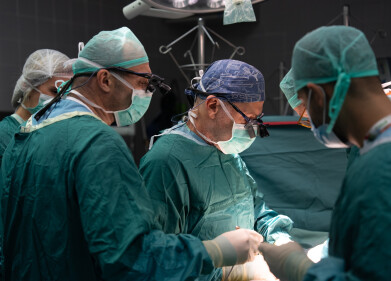News
Can My Employer Test My DNA?
Jun 24 2015
The huge advances in the world of DNA technology mean that taking a sample of someone’s genetic makeup can tell us a whole lot about them. As well as learning their exact chromosomes, it can reveal information about the person’s familial history, sexual relationships, propensity to disease and even injury.
To learn how this information is used in various applications – especially in the field of forensic science and crime scene investigations, check out this illuminating article on the Collection and Interpretation of DNA.
However, when such tests infiltrate spheres outside of crime control, they can become a cause for concern. In the workplace, for example, taking DNA from employees – or even asking for a sample in the first place – can be a risky business. This risk was highlighted recently in a curious court case from the United States, given the unlikely and amusing moniker “the devious defecator”.
The Devious Defecator
The singular case arose in Atlanta, Georgia, concerning a transportation and storage company named Atlas Logistics Group Retail Services. Executives became concerned when it became clear that someone had been defecating regularly on their warehouse floor.
Ignorant of who the culprit was but suspicious that it must inevitably have been a disgruntled employee, the company asked for cheek swabs from each of their staff to find the guilty party by a process of elimination. Two of the staff, Jack Lowe and Dennis Reynolds (both of whom were eventually cleared of any defecation or wrongdoing by the DNA tests) protested an infringement on their worker’s rights and took the company to court.
Citing an obscure and little-known piece of legislation brought into effect in 2008 called the Genetic Information Non-Discrimination Act (GINA), the pair sued Atlas Logistics essentially for discrimination. The case is an unusual one because a) GINA has never been called upon before b) the discriminatory case does not actual involve any discrimination at all and c) someone has been defecating upon the floor of the warehouse – itself a rare occurrence.
The Judge Rules in Favour of the Prosecution
Despite the fact that Atlas were not using the DNA information to discriminate against Lowe and Reynolds, but rather to clear them of any wrongdoing, the ruling Judge Totenberg found in favour of the claimants.
Looking simply at the statute itself (which was brought into effect to try and assuage public fears that genetic information might be used against them in job applications, promotions or the suchlike), the Judge commented: “The unambiguous language of GINA covers Atlas’s request for Lowe’s and Reynold’s genetic information and thus compels judgement in favour of Lowe and Reynolds.”
The thinking behind the ruling must be not that the company were intending to use the information for discriminatory purposes, but that the potential for future discrimination did exist. Once a company gains sensitive data such as that mentioned above (ancestry, sexual relations, likelihood of disease or injury), they could theoretically know more about the person than the subject knows themselves, and base future evaluations and judgements upon it. Such a state of affairs would clearly be unacceptable.
In any event, the advances which the field has made over recent years is a cause for optimism in whichever light you look at it. Whilst companies may have learned a valuable lesson in the case of the “devious defecator”, the data contained in our DNA is something which could undoubtedly be used for the greater good if handled correctly.
Digital Edition
Lab Asia Dec 2025
December 2025
Chromatography Articles- Cutting-edge sample preparation tools help laboratories to stay ahead of the curveMass Spectrometry & Spectroscopy Articles- Unlocking the complexity of metabolomics: Pushi...
View all digital editions
Events
Jan 21 2026 Tokyo, Japan
Jan 28 2026 Tokyo, Japan
Jan 29 2026 New Delhi, India
Feb 07 2026 Boston, MA, USA
Asia Pharma Expo/Asia Lab Expo
Feb 12 2026 Dhaka, Bangladesh



















